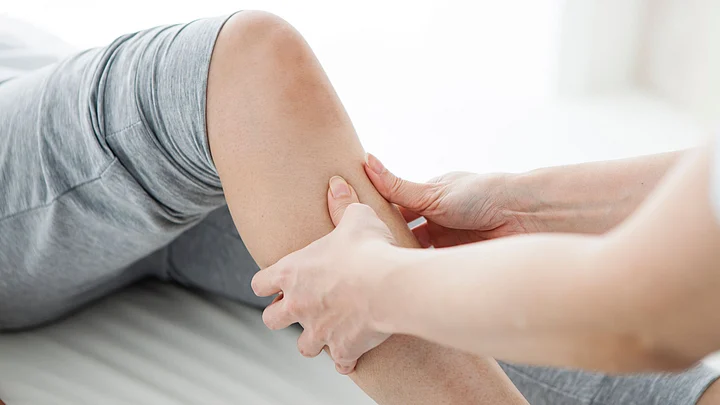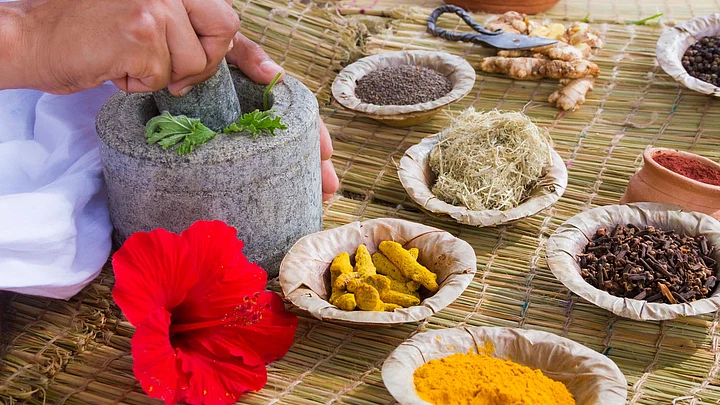Do you suffer from unexplained joint pain and stiffness that doesn’t have any apparent cause? If the symptoms aggravate or persist, consult a doctor immediately. These symptoms may signify an onset of arthritis, causing inflammation of joints, pain, stiffness and disability.
Sore joints make any movement painful, reduce physical activity, and increase stiffness. Disuse atrophy sets in and soon becomes a vicious circle. The diagnosis often leads to emotional shock by imagining the worst-case scenario of becoming bedridden. This crippling disease is on the rise.
In India, arthritis affects more than 180 million people and causes unbearable and intense pain, affecting the quality of life by making even regular activities difficult.
The serious disease is considered incurable by western medicine. The prescribed pain killers, anti-inflammatory drugs and steroids don’t address the root cause. Instead, the patient becomes dependent on these drugs and experiences serious consequences.
There are more than 100 different forms of arthritis and similar diseases out of which osteoarthritis (OA), rheumatoid arthritis (RA), psoriatic arthritis (PsA), gout and fibromyalgia are more prevalent.
Causes and Symptoms of Arthritis

Symptoms of arthritis include stiff, painful and inflamed joints, slight fever, loss of appetite, extreme fatigue, weight loss and decreased range of motion. However, they vary according to the type of arthritis.
- Family history can make you genetically susceptible to this disease.
- Risk of osteoarthritis, rheumatoid arthritis and gout increases with age.
- Women are more likely to develop rheumatoid arthritis while men suffer more from gout.
- An injury to a joint can trigger arthritis.
- Another major cause is obesity as excess weight puts a lot of stress on knees, hips and spine.
Seeking a specialist’s opinion is crucial if you have symptoms and also the risk factors. Arthritis should not be ignored as it seriously damages bones and cartilage, resulting in deformity and disability.
Conventional Treatment
Conventional treatment for arthritis includes prescription of pain killers to ease pain, nonsteroidal anti-inflammatory drugs to lower both pain and inflammation and corticosteroids to reduce inflammation and supress the immune system.
The treatment is long term and the patient may suffer complications due to long term use of drugs. Physiotherapy is prescribed to strengthen muscles around the joints and improve the range of motion. Surgery is recommended in some cases to realign the joints to reduce pain and improve function.
However, these are expensive and complicated procedures with several side effects.
What Does Ayurveda Say?
According to Ayurveda, there are three types of musculoskeletal disorders, namely, amavata (rheumatoid arthritis), sandhivata (osteoarthritis) and vatarakta (gouty arthritis). The ancient science believes that excess vata or ama circulating in the body get deposited in the joints, producing swelling and inflammation, eventually resulting in arthritis.
Amavata or rheumatoid arthritis is the consequence of formation of metabolic waste called ama due to improper digestion. Osteoarthritis is caused by excess vata in the body. Lack of movement, emotional stress and improper lifestyle are some other reasons.
Ayurvedic treatment takes the whole-body view for treating arthritis by taking into account the patient’s physical constitution, lifestyle and food habits.
It involves modification of diet, massage and relaxation activities. It emphasizes yoga for full movement in the joint and flexibility to manage any type of arthritis. Herbs like ashwagandha, boswellia, ginger, guggulu, shatavari, triphala and turmeric are prescribed.
Ayurvedic Diet to Manage Arthritis

- Strictly follow regular meal times
- Avoid acidic foods. Keep 75% of your diet alkaline.
- Unpolished, long grain rice or red rice, barley and fox millets are beneficial.
- Green vegetables, bottle gourd, bitter gourd and drumsticks are good options.
- Avoid vegetables like lady's finger, cauliflower, yam, jackfruit and tomatoes
- Include fresh fruits like apple, papaya and guava
- Soak dried grapes and figs overnight and eat in the morning
- Ginger, turmeric and garlic have antimicrobial, anti-inflammatory and analgesic properties and should be included in the diet.
- Split moong dal, barley flour, honey, cumin seeds and dry ginger powder, are beneficial for rheumatoid arthritis
- Avoid sour curd. Add crushed garlic cloves to a glass of buttermilk and drink every day.
- Avoid incompatible foods like milk and fish or milk and jaggery together.
Other Ayurvedic Tips
- Follow a healthy lifestyle with periods of regular rest and relaxation.
- Fomentation (application of moist heat), steam bath or bath with lukewarm water is recommended.
- Fasting is beneficial, but should be done only under the supervision of an Ayurvedic practitioner.
- Yoga helps in managing arthritis by reducing inflammation and pain, and by increasing and maintaining mobility. Try many styles of yoga before deciding the most suitable.
Arthritis affects the quality of life. If ignored it can lead to disability. Allopathy doesn’t offer much hope.
Ayurveda’s holistic way of treating any disease makes it a safe and natural healing process without going through complicated invasive procedures or chemical based medications.
There is no need to ruminate on pain, imagine the worst-case scenario or feel hopeless. Ayurveda can help you to cope with this disease. Consult an Ayurvedic doctor to discuss the treatment and adopt a holistic way to manage arthritis.
(Nupur Roopa is a freelance writer, and a life coach for mothers. She writes articles on environment, food, history, parenting and travel.)
(At The Quint, we are answerable only to our audience. Play an active role in shaping our journalism by becoming a member. Because the truth is worth it.)
